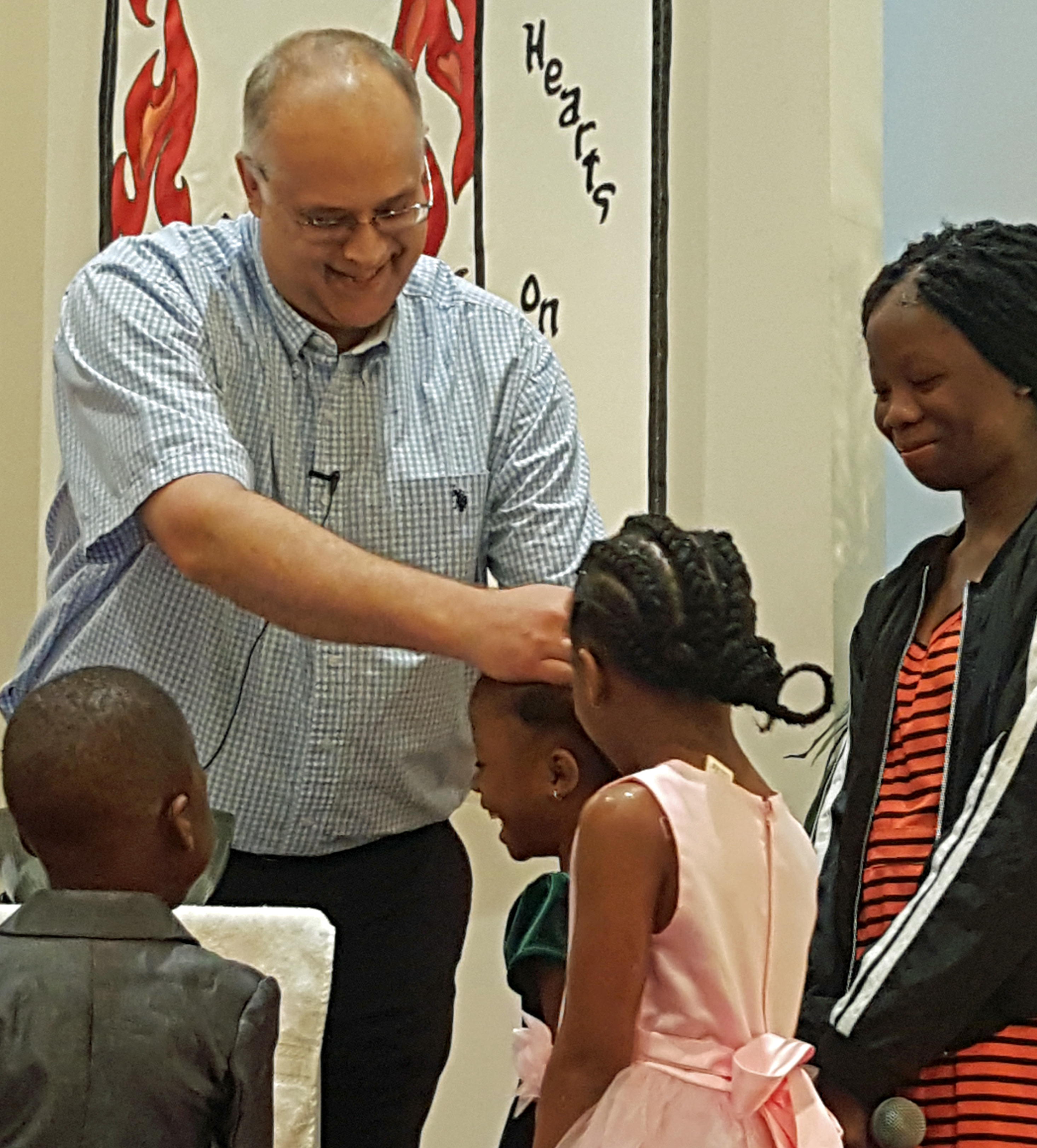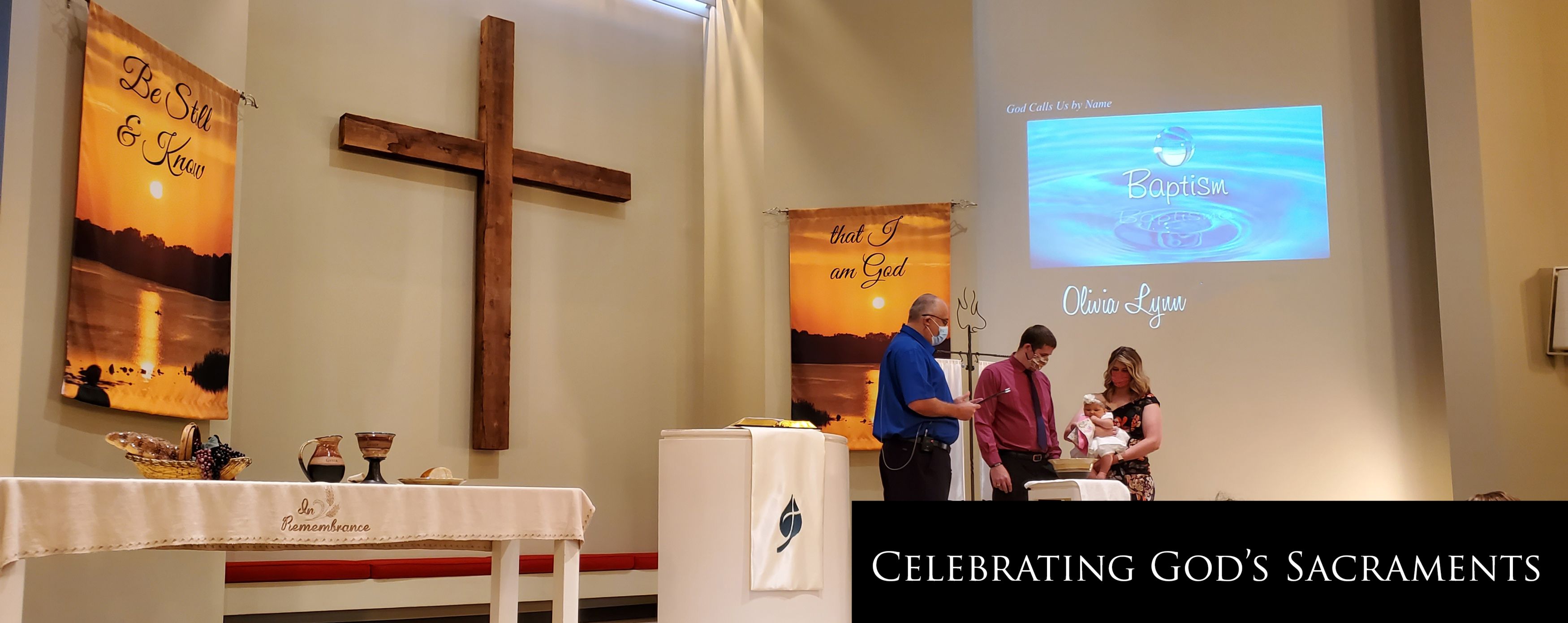Lord’s Supper
 “All baptized members who come with age- and ability-appropriate faith in Jesus Christ are welcome to the Lord’s Supper (Holy Communion)” (Church Order, Article 59-a). “We receive the spiritual nourishment and refreshment of the bread and cup of the Lord ‘as sure signs’ in remembrance of Christ’s body and blood poured out for us in His once-for-all sacrifice on the cross” (Heidelberg Catechism, Q. and A. 7582).
“All baptized members who come with age- and ability-appropriate faith in Jesus Christ are welcome to the Lord’s Supper (Holy Communion)” (Church Order, Article 59-a). “We receive the spiritual nourishment and refreshment of the bread and cup of the Lord ‘as sure signs’ in remembrance of Christ’s body and blood poured out for us in His once-for-all sacrifice on the cross” (Heidelberg Catechism, Q. and A. 7582).
a. The Lord’s Supper is a celebration of God’s grace, not human achievement. It is a means of grace through which God acts to seal the promises from His Word. The power of the celebration does not lie in our ability to think hard about Jesus’ death and our sin, but in the way God’s Spirit uses the celebration to nourish and sustain us. The Lord’s Supper is a gift!
b. The Lord’s Supper is not an end in itself. It always points beyond itself to celebrate God’s grace, covenant faithfulness, and Christ’s coming again.
c. The Lord’s Supper is a sign of a covenantal relationship. Our relationship with God in Christ is based on promises.
d. The Lord’s Supper is deeply personal, but never private. It is a communal action of the gathered congregation, which represents the church in all times and places.
It is a good practice to review 1 Corinthians 11:23-29, especially verses 27-29 prior to partaking in the Lord’s Supper.
For I pass on to you what I received from the Lord Himself. On the night when He was betrayed, the Lord Jesus took some bread and gave thanks to God for it. Then He broke it in pieces and said, “This is My body, which is given for you. Do this in remembran ce of Me. ” In the same way, He took the cup of wine after supper, saying, “this cup is the new covenant between God and His people – an agreement confirmed with My blood. Do this in remembrance of Me as often as you drink it.” For every time you eat this bread and drink this cup, you are announcing the Lord’s death until He comes again.
So anyone who eats this bread or drinks this cup of the Lord unworthily is guilty of sinning against the body and blood of the Lord. That is why you should examine yourse lf before eating the bread and drinking the cup. For if you eat the bread or drink the cup without honoring the body of Christ, you are eating and drinking God’s judgment upon yourself.
There are different names for this celebration:
e. “Lord’s Supper” conveys that Jesus Himself is host of the supper, and that we celebrate this feast in obedience to Christ.
f. “Communion” highlights the intimate union we experience with both Christ and fellow believers.
g. “Eucharist” (Greek for thanksgiving) names this feast as a meal of gratitude, just as the last supper was, for Jesus and His disciples, a meal of thanksgiving.
Matthew 26:26 shares four verbs from the last supper: Therefore, we are to:
Jesus took bread, take the bread, announcing that it is God’s gift for us
gave thanks, give thanks for all God’s faithfulness to us
broke it, and break the bread, with gestures of hospitality
gave it to His disciples. offer it to the gathered community in love.
Through the Lord’s Supper, we receive Christ and all His benefits by the mediation of the Holy Spirit through faith. Therefore, we celebrate it often, with appropriate joy, reverence, and faith.
Baptism

We believe our children ought to be baptized and sealed with the sign of the covenant, just as little children were circumcised in Israel. We are to teach our children that they have been baptized and prayerfully encourage them to affirm the promises of their baptism by professing their faith in Jesus Christ. Since baptism is a covenantal act, it requires faith and commitment on the part of those being baptized or their covenant representatives (parents). For adults, this requires a profession of faith, and for infants, the faith of the parents and the congregation, and their commitment to nurture the faith of the child toward a mature profession of faith.
In contrast, “dedication speaks of our believing approach to God. That’s all. Infant baptism goes far beyond that to speak also of God’s faithfulness and promises to us.” (Rev. Henry De Moor)
Baptism was instituted by Christ after His victorious resurrection. “All authority in heaven and on earth has been given to Me. Therefore, go and make disciples of all nations, bapti zing them in the name of the Father and of the Son and of the Holy Spirit, and teaching them to obey everything I have commanded you. And surely, I am with you always, to the very end of the age” (Matt. 28:18-20). In this command, Christ Himself makes baptism the universal entrance into His church, and the mark of our discipleship.

